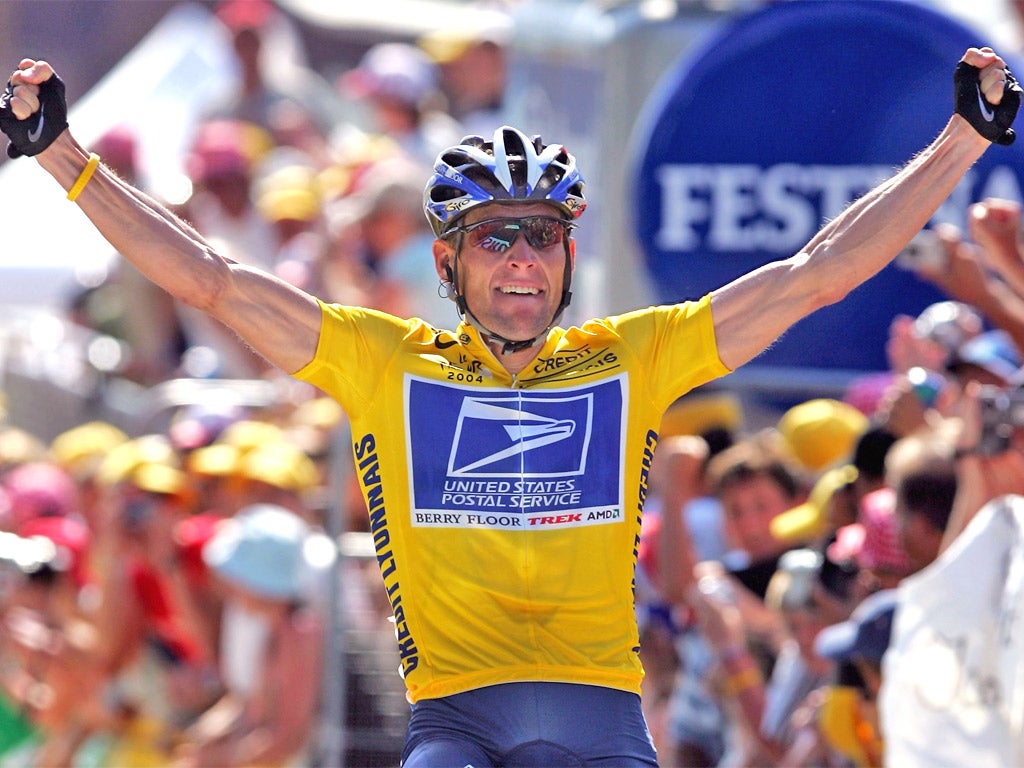James Lawton: Shameless is the word for response to Lance Armstrong scandal from 'Teflon' Pat McQuaid and his UCI pals
Pat McQuaid defended the indefensible. The comparison with Fifa’s Sepp Blatter is clear

Shameless sports governance has probably lost the power to shock but if there is any juice left in the possibility it has rarely been more vigorously squeezed than by the indefatigably brazen president of cycling's world authority, Pat McQuaid.
Not, anyway, since Sepp Blatter, president of Fifa, and his principal cohort Michel Platini, president of Uefa, insisted that the World Cup in Qatar in 2022 was not only a decent and viable proposition but that it would bring an exciting dimension to the world's most popular game.
In terms of sheer scale, maybe nothing can match the proposed abomination in the desert, and the coldly cynical greed that has earned it support at the highest level.
Yet it was McQuaid's achievement, when unavoidably acquiescing in the stripping of Lance Armstrong's seven Tour de France titles, that he provoked almost as sharp an intake of breath as when the industrially shop-soiled Blatter announced the World Cup triumph of the pocket of sand on the Gulf.
He did it with a profoundly disagreeable defence of the indefensible.
Neither he nor his Dutch predecessor Hein Verbruggen, a serial denier that cycling was infested by cheats from Armstrong down and who is now quaintly described as the honorary president of the UCI, had any reason to resign on the day their organisation was obliged to roll over in the face of the United States Anti-Doping Agency's crushing case against the American and a whole generation of leading cyclists.
He categorised the whistle-blowers as "scumbags". He said that the men who plea-bargained their way down to six-month suspensions should be expelled despite the fact that they had done more to cleanse the sport than the hundreds of drugs tests unsuccessfully applied to Armstrong by the UCI.
He didn't see a problem in the $100,000 donation Armstrong presented to the UCI; indeed, it was a practice that made a deal of sense. Why shouldn't the world cycling body benefit from the richest of the competitors it was supposed to monitor, a job for which the work of Usada had exposed it as utterly unfit for purpose?
Most shocking of all was the resolve to press on with the legal action against Paul Kimmage, a clean cyclist who as a journalist had fought so long to expose Armstrong's huge role in the astonishing subversion of the upper levels of an entire sport.
Kimmage had committed the cardinal crime of "defaming" the UCI. His case is to be heard in December. The court will be told that Kimmage's central argument was that the UCI had signally failed in its duty of care. Alice in Wonderland, surely, would not look out of place in the spectators' gallery.
The comparison with Fifa's Teflon man Blatter is inescapable. The myth of Qatar as a World Cup venue that doesn't outrage every sense of propriety is gigantic but could anything have been more grotesque than Armstrong's manipulation of cycling and its most prestigious event in the face of an administration that could at best be described as inept?
If there could be any point of agreement with McQuaid this week it was only in his contention that cycling, no more than track and field, would ever be entirely clean. This, we have known down the years, is not so much about effective drug controls as human nature. It is something we were required to point out to the national hero Bradley Wiggins and the darling of the Olympics, Usain Bolt, when they indignantly brushed aside questions about doping suspic- ions in this year of their great triumphs.
The questions were not directed so much at the integrity of Wiggins and Bolt but the realities of their worlds.
The convicted doper David Millar reacted eloquently to McQuaid's scatter-gun attack on those who had helped Usada smash wide open the complacent world so relentlessly exploited by Armstrong.
"Pat McQuaid was his usual self, sure of himself even when nobody else was," Millar wrote. "Unlike some, I was not concerned in the slightest when he read out the long list of riders, some of them big names, who have been caught in the last six or seven years. I consider that confirmation of what I know to be true. It is that cycling is a much better place."
Millar had been caught in some of the crossfire when McQuaid rejected any case for his own resignation. The president said the blame had to rest with the cheats, not the organisation that failed to catch them. "I don't think the UCI should apologise. They didn't hold David Millar's hand when he stuck a needle in his backside."
No, they didn't do that. The charge is that they might have been a million miles away when the syringe was applied. Certainly they were in a desert of their own.
Join our commenting forum
Join thought-provoking conversations, follow other Independent readers and see their replies
Comments